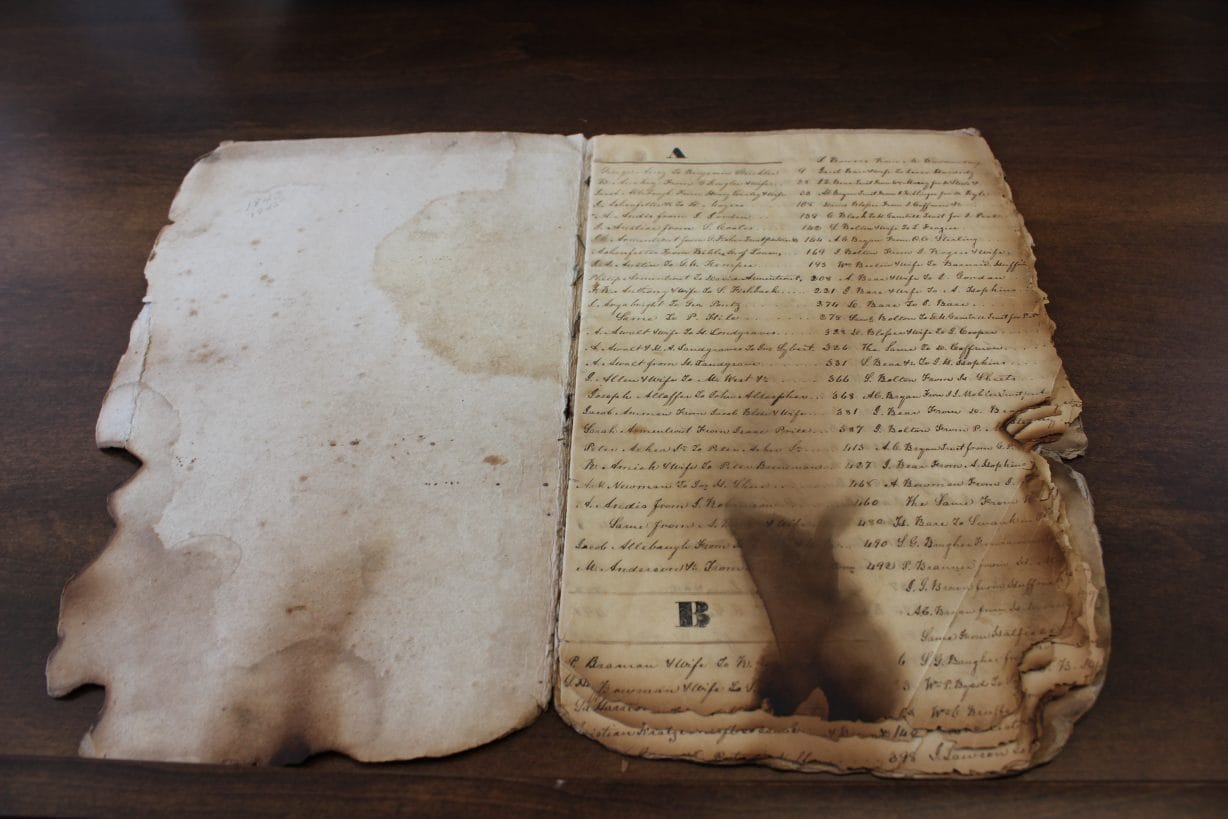
Story and photos by Bridget Manley, publisher
For centuries, the records of Rockingham County – of people who lived and died here – were kept on shelves in a tight space on the top floor of the courthouse in the center of town.
In the past, if you’d wanted some particular one or the other, you might call and ask, but there wasn’t an easy way for anyone to search for themselves.
Now, thanks to JMU Libraries, groups of graduate students and Chaz Haywood, clerk of the Rockingham County Circuit Court, a growing online database makes records about those who lived in the Valley over the last 250 years much more accessible.
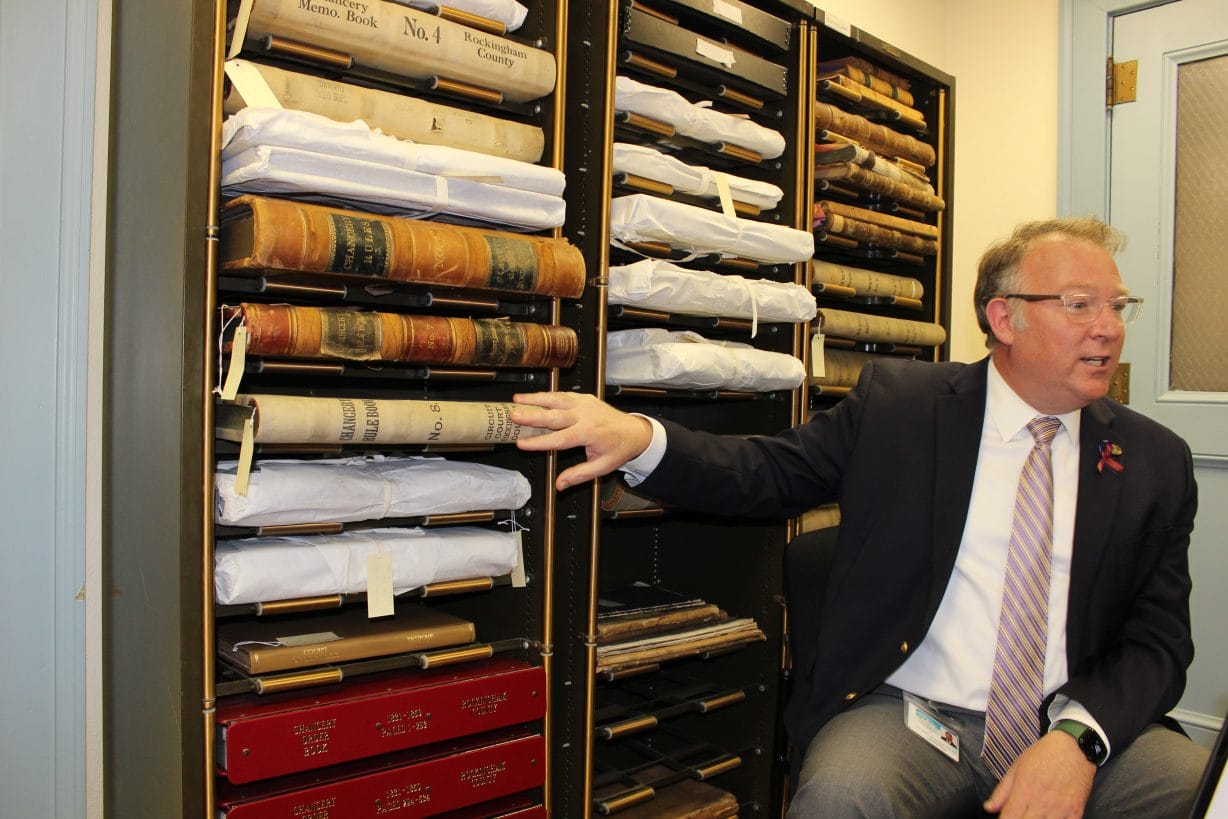
“Histories Along the Blue Ridge” can be used by anyone to search a growing database of records for Rockingham County. And while it will take some time yet for most records to be included, every year another project adds to the collection and gives more insight to the history of the Valley.
Graduate students at JMU have created specific projects to digitize records the collections, so far including ones about people who were displaced to create Shenandoah National Park, the records surrounding the Prohibition era, and a collection called “Overseers of the Poor” which highlights the racial disparities in how poor people were treated in the past.
The documents date back to 1778, and include the oldest document in the entire courthouse’s collection – a land deed from King George of England written on parchment.
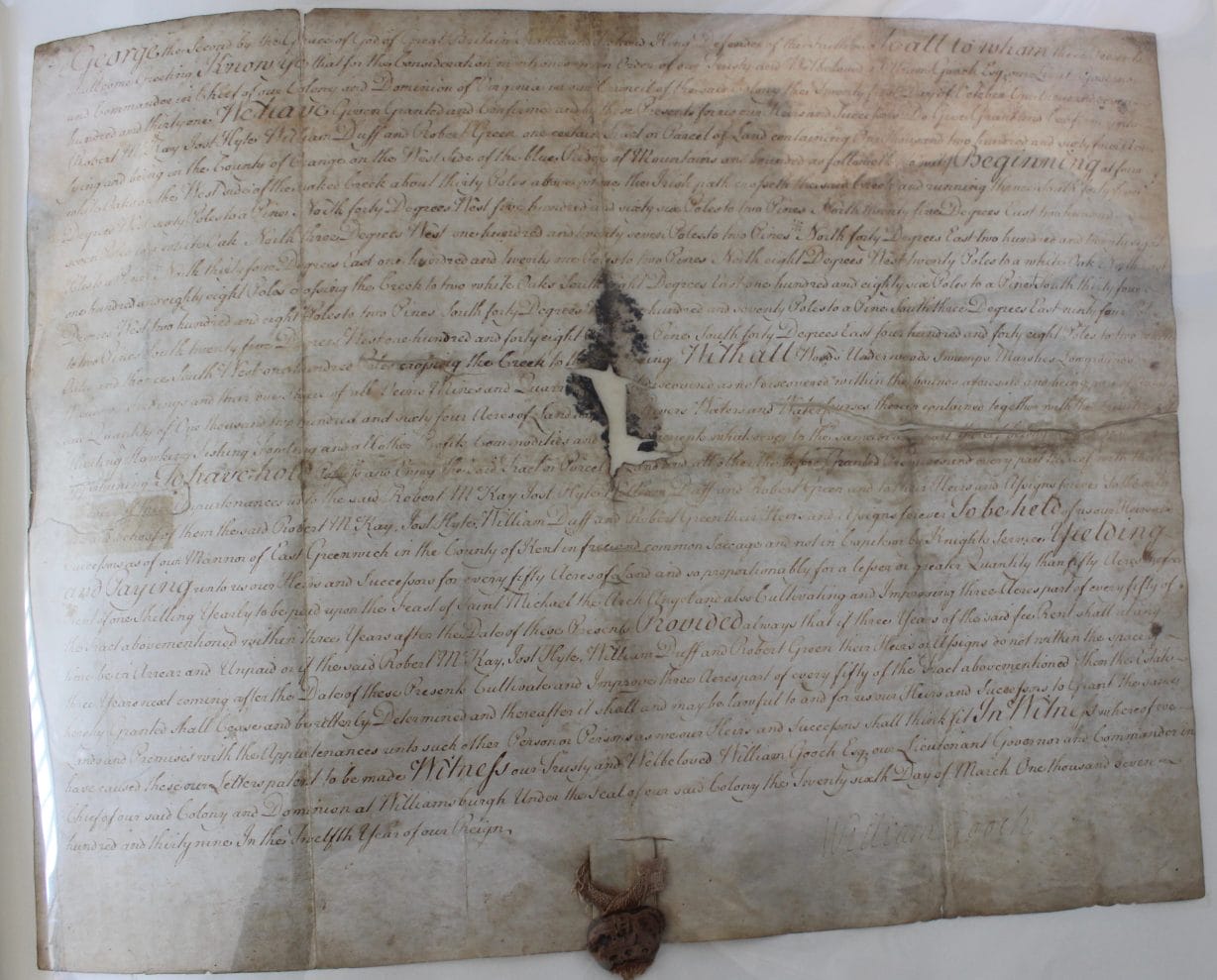
Haywood, who has long been working to publicize records at the courthouse, is excited to continue “unearthing” the documents from heavy books buried deep in storage areas and scrolls that were meticulously cared for but rarely read.
The records include births, deaths, land purchases and sales, and many civil and criminal cases over the centuries.
JMU Libraries, which has partnered with Haywood and the graduate students to help digitize and preserve the data, also work on the monumental task of metadata – that is, all the wording in the documents that help make the project usable by the public.
“In order to have useful stuff that is searchable, you’ve got to have metadata along with it,” said Dr. Kevin Borg, faculty coordinator for the digital project.
The archivists prioritize including as many family names as possible in the metadata to make it easier for people to search for records about their ancestors.
Exploring Rockingham’s Past
In 2017-18, graduate students began the ongoing project by digitizing records associated with the displacement of over 2,000 people who were forced off their land to create Shenandoah National Park. Seventy years later, many still bear the emotional and generational scars of that displacement, according to Borg.
For that project, students digitized more than 15,000 pages of court proceedings and other legal documents that told the story of the forced removal. Afterwards, JMU invited families of those displaced to review and search the archives.
“It was one of the most emotional academic unveilings I have ever been to,” Borg said.
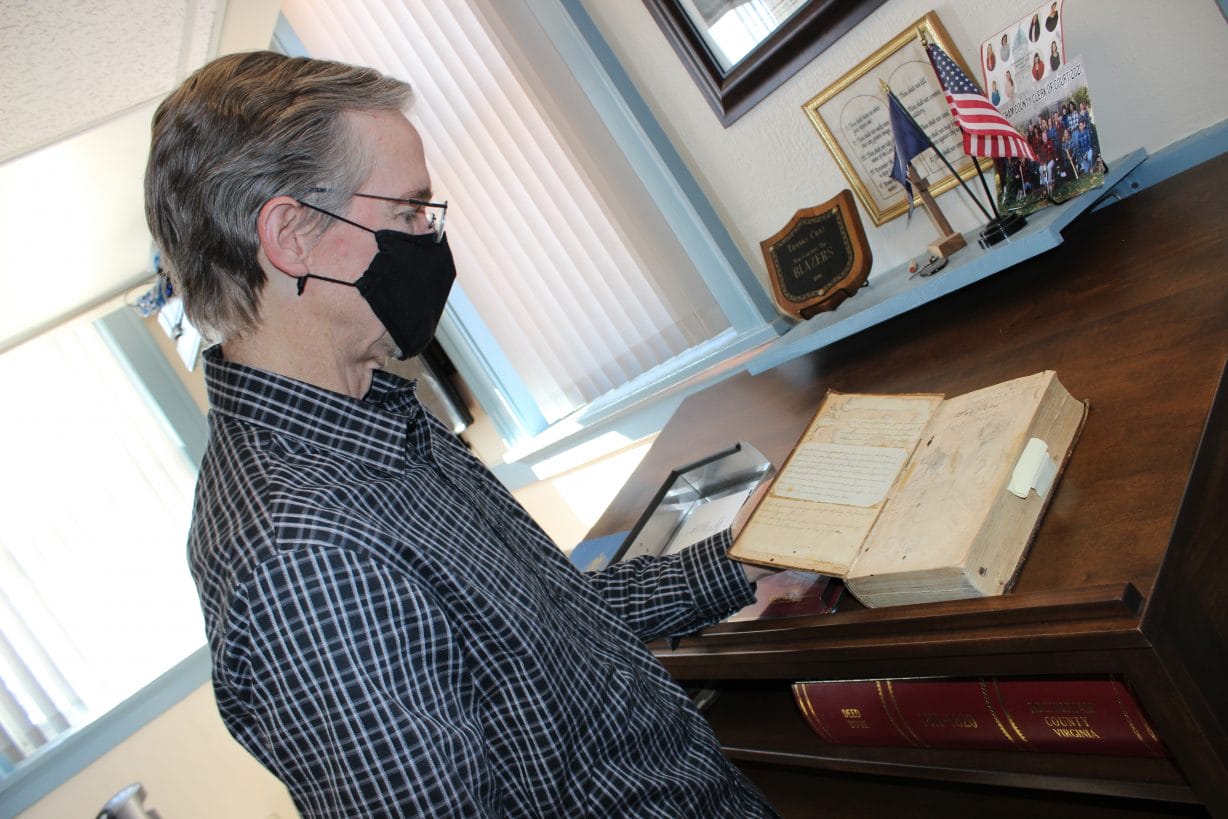
Haywood said that seeing the records of their families, including letters asking the government not to take their land, was healing for many families.
“We had this other sense of healing between the government and the families who had been affected, who had heard the stories of coming home and mom and children being dragged out of their house on the Blue Ridge, and forced to leave the mountain,” Haywood said. “We had the grandchildren of a lot of these folks, and even some that were young children.”
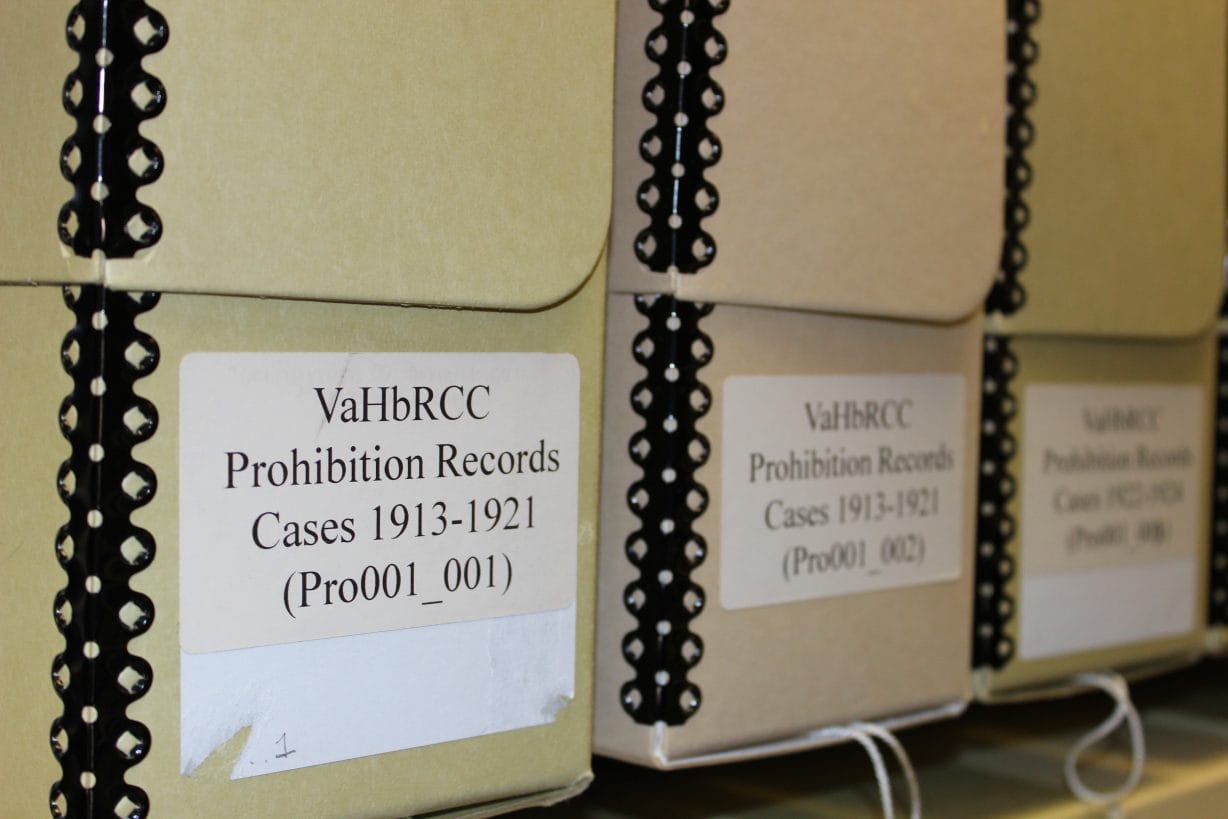
Prohibition in Rockingham County
Although the Volstead Act made alcohol illegal nationwide in 1919, prohibition came to Rockingham County had gone dry five years earlier. The “Prohibition in Rockingham County” digital archive feature over 6,000 court records from that era – including criminal cases, liquor inventories, “Affidavits for Ardent Spirits,” and other records.
Most locally elected officials, according to the records, supported prohibition, while many “poor mountain white people” were opposed.
Bootlegging and moonshining were common records of criminal arrests, and many, like a middle-aged women named Jennie Shirkey who ran a washing service, did it for extra cash during the Great Depression.
Another man, Clarence Baugher, ran a small bootlegging operation out of a rooming house in Harrisonburg. The house operator, Mary Dolan, started keeping tabs on Baugher, and eventually turned him in to the local sheriff. He was sentenced to 4 months in prison and a $400 fine.
Overseers of the Poor
The latest digitized collection is called “Overseers of the Poor,” and features documents that tell the story of poverty and prejudice in the 1800s, and how people who were suffering were treated based on the color of their skin.
Poor white people were often given indentured servitude, through which they could learn trades that offered a way to bring themselves out of poverty.
But for poor Black people, the choices were far more bleak. Most of the time, they were sent to poorhouses, which provided food and shelter in exchange for labor, but little opportunity for advancement.
Haywood says that the records can show a fuller history than we remember – and cross reference voter registers, registers of free African-Americans, and other pieces of information to paint a fuller picture about the history of the Valley.
“If you don’t tell that whole story, you lose what was different to each individual,” Haywood said.
The future of the collection
While many documents at the courthouse have been digitized, many more yet contain spectacular stories. Among them are several of the “lost records” from a wagon burning in Port Republic during the Civil War.
In June of 1864, as Union troops advanced into the Shenandoah Valley, a judge granted an order to move the courthouse records to a safe place east of the Blue Ridge Mountains. Many volumes were loaded onto a wagon which left town but only made it as far as Port Republic when a wheel and rim broke. When the driver left to find spare parts, Union troops found the wagon and set it on fire.
According to the local story, a mother of a Confederate soldier who saw the burning wagon used water and straw to put out the fire and rescue what she could.
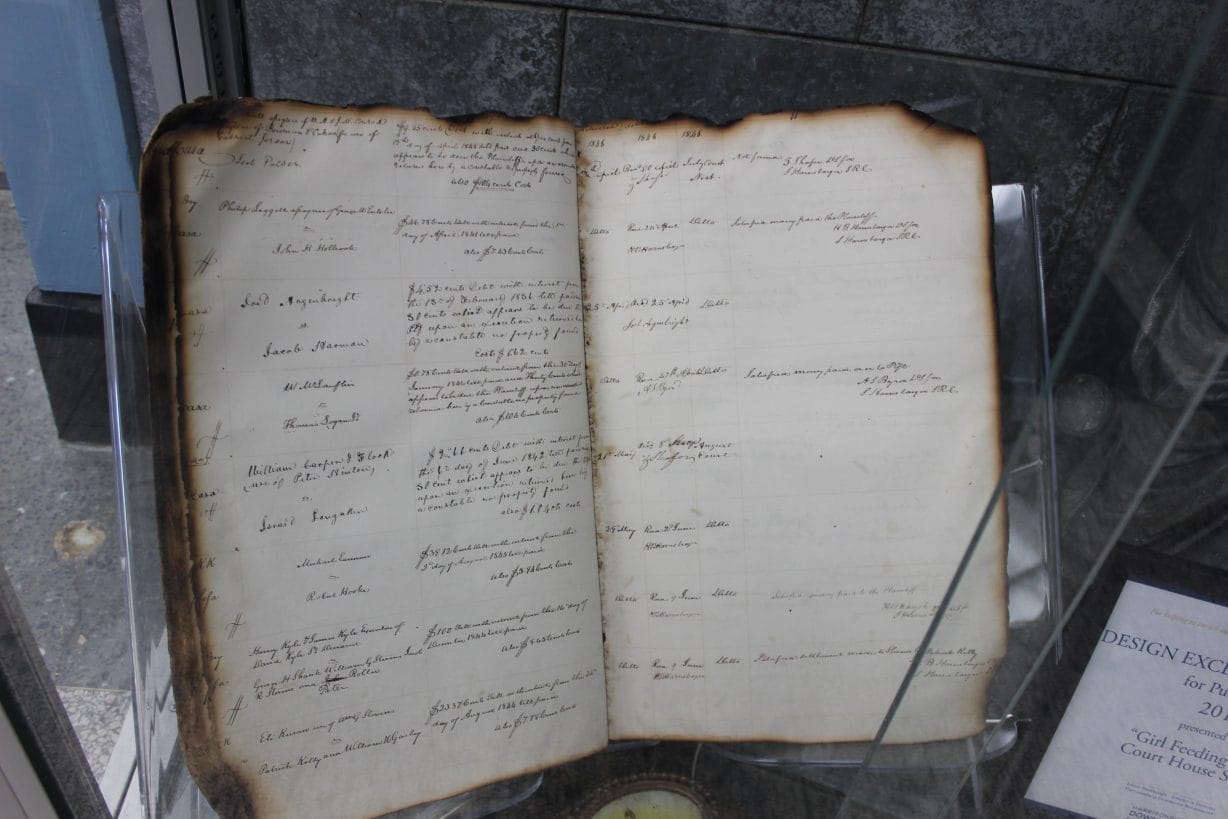
Haywood said that the records, which were saved by Mary Keezel, were eventually given back to the Circuit Court. Several are on display in the courthouse.
Both Haywood and Borg are excited for new projects that JMU graduate students might take on was the years go on, as more documents become available to the public.
“There are so many stories to be discovered,” Borg said. “There are so many stories to be told.”
Journalism is changing, and that’s why The Citizen is here. We’re independent. We’re local. We pay our contributors, and the money you give goes directly to the reporting. No overhead. No printing costs. Just facts, stories and context. We’re also a proud member of the Virginia Press Association. Thanks for your support.













